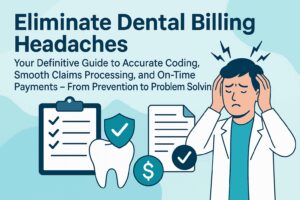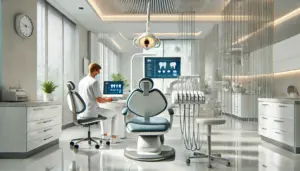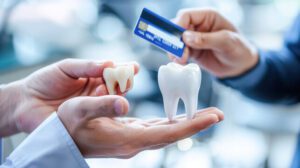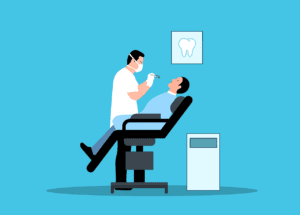
Effective Ways to Reduce No-Shows & Cancellations in Dental Insurance Billing

One of the most critical issues facing practices today is failed appointments. If the practice has no proactive plan to minimize no-shows and cancellations, the trend has a tendency to grow, dramatically impacting production, profitability, patient satisfaction, and team morale. Studies have shown that for hygiene cancellations, the cost to the practice in lost time and opportunity could exceed $30,000 per hygienist per year. The author has found for operative appointment failures, the impact is even more significant, and can result in a loss of $100,000 or more in production. Often practice teams place the blame of failed appointments on the patients—their lack of respect for the dentist’s time, their lack of urgency of getting the dentistry done, and just plain rudeness. Although some of the responsibility rests with patients, a significant contributor to the problem is the dental team and the lack of training on communications skills that prevent failed appointments and how to effectively handle and “turn around” cancellation calls.
For patients, being charged a fee for not coming to their appointment feels like a slap on the hand. They may pay it begrudgingly, or they may choose not to pay it and leave the practice. Either way, charging the fee doesn’t teach patients not to cancel or no-show. They learn there is a price for not keeping the appointment, but they don’t necessarily change their behavior.
From a financial perspective, a nominal cancellation fee does not recoup what is lost from that open chair time. Charging a fee may give the office a feeling of penalizing the patient, but the fee itself won’t make up for the open chair time and lost production.
To reduce the number of no-shows and cancellations, here are some effective ways you can try implementing into your practice:
Train patients not to cancel
For appointments made in person or over the phone, it’s vital to explain to patients that they need to let you know at least 24 hours in advance if they must cancel or reschedule their appointments. Depending on your practice, you may even want to state that a fee will be incurred for last-minute cancellations.
Fool me once, shame on you. Fool me twice
It’s impossible to know who’s going to be a chronic no-show until it’s too late. If a patient has two recent no-shows on his or her file, do not reschedule the person again. These patients need to be placed on a short-notice list for openings that pop up due to last-minute cancellations or for times that are challenging to fill. Do not allow them to schedule during prime time-slots such as at the end of the day or during extended office hours. Reserve these times for reliable patients of record.
Explain the importance of their dental treatment
Next, you need to explain how important it is to their oral health that they reschedule soon. Even if it is just for a cleaning, remind them that going too long in between appointments can result in more extensive and expensive dental treatment in the future.
Educating the patient on their oral health isn’t meant to scare them, but it will create a sense of urgency that will get them into the chair as soon as they can. You can explain the problems that may occur when treatment is delayed. You want to do this in a way that is educational and not full of doom.
Be sympathetic
There will always be situations such as illness, emergencies, and accidents that require even the most reliable and trustworthy patients to cancel appointments. These people demand our respect and concern.
If the last-minute cancellation is due to an illness, it’s essential to remember that we are health-care providers first and foremost. It’s important that actively infectious people do not come in for dental care as this could cause illness or infection to spread among other people in the office. If the dentist or hygienist is not comfortable seeing a patient with an active cold sore, they should not be encouraging someone with the flu or a cold to come in either. Schedule the patients for one to two weeks out.
The New Patient Telephone Call
The best communicator in the office needs to be the person who is scheduling that first appointment because that is the first impression the patient receives. The way the telephone is answered and how the appointment is set determines the patient’s perception of the financial, scheduling, and care philosophy of the practice. It should be communicated that the dentist’s time is valuable and that the patient has responsibilities, including financial responsibilities. The one thing that should never, ever be said is, “If you need to cancel or reschedule, give us a call.”
Talk them out of canceling
Sometimes people cancel due to fear or financial restraints rather than the reason they’re providing over the phone. They may be less than forthcoming due to embarrassment. When a patient calls to cancel and seems uncertain, it’s best to encourage the person to keep the appointment, especially if you don’t have an opening for quite some time afterward.
A conversation could go like this. “Mr. Jones, we don’t have an opening for a crown appointment for another two weeks. I would hate for your tooth to break and for you to need both a root canal and crown all at once. Unfortunately, that’s quite common if a crown treatment is put off too long. We do offer several financing options if that would make it more convenient for us to see you today.”
GIVING THE TEAM THE TOOLS
Exceptional verbal skills are developed over time through a proactive and systematic training plan. One of the most effective ways to improve communications skills is through role playing, ideally at each staff meeting. Every week, put a notepad into each operatory and at the front desk and write down every question patients asked and how the team responded. Use this information and work as a team to develop scripts that clearly communicate the practice’s philosophy, especially when it comes to setting and confirming appointments, discussing fees and payment options, and assessing the patients’ “buy in” of their dentistry. It would be wonderful to reduce cancellations and no-shows to fewer than 5% instead of the industry average of 15%. It can be done. Once you start tracking your trends, either through practice-management software or by simply determining the percentage of failed vs completed appointments, just the mere fact of meeting about issues and working as a team to improve communications skills alone can immediately improve results.
Contact Us
Phone: 908-357-1515
111 Town Square Pl, Suite 1203 Jersey City, NJ 07310






















